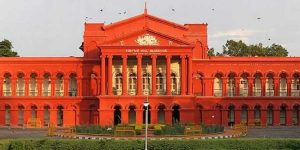$100 Website Offer
Get your personal website + domain for just $100.
Limited Time Offer!
Claim Your Website NowLatha Rajinikanth to face criminal proceedings, Supreme Court sets aside Karnataka HC’s order
Source – newindianexpress.com

NEW DELHI: Troubles seems to be aggravating for Superstar Rajinikanth’s wife Latha Rajinikanth as the Supreme Court on Tuesday said that she will have to face a trial for not complying with an undertaking to pay Rs 6.2 crore that she owed to a movie distribution company for the post-production work of Tamil film Kochadaiyaan.
After today’s order, Latha will also have to seek bail from the trial court now. A bench headed by Justice Ranjan Gogoi set aside the Karnataka High Court order, which had quashed a private complaint against Latha over non-repayment of a loan.
“This is a case fit for trial. There was no reason for the High Court to have quashed the complaint. You prove your innocence during trial,” the bench said while allowing the appeal filed against the order to exonerate her.
The bench said that it is a ‘triable issue’ and that the High Court was not justified in quashing the case which should have gone for trial.
AD-Bureau Advertising Pvt Ltd has alleged that it had given the money during the post-production of 2014 film Kochadaiiyaan to Mediaone Global Entertainment Ltd on personal guarantee of Latha, who is a director in Mediaone.
The agency, in its private complaint alleged that they had funded Rs 10 crore for the film.
The advertising agency sought investigation and trial of Latha under charges of cheating, alleging that her firm did not only fail to repay the money, but also used the loan to cover some previous debts.
While the trial court had ordered for investigation, the Karnataka High Court quashed the complaint, compelling the advertising agency to move the apex court in appeal.
The advertising agency had claimed that Mediaone Global Entertainment Ltd was required to refund Rs 10 crore plus Rs 1.2 crore being the “guaranteed profit”, but the amount was not refunded.
In February, Latha’s lawyer gave an undertaking in the court that if her firm does not pay in three months, she will be personally liable to pay Rs 6.2 crore to the advertising agency.
However, last week, the lawyer for her firm offered to give a cheque of only Rs 10 lakh and contended that the previous undertaking was without her approval.
During the hearing today, Srinivasan contended that she was not a director in the firm concerned and that the dispute was purely civil in nature.
During the hearing today, Latha’s counsel told the bench that they had argued before the high court about “breach of agreement” by the agency since they had agreed to pay Rs 20 crore to Mediaone Global Entertainment Ltd but later paid only Rs 10 crore.
“Just because they (agency) did not give you Rs 20 crore, will you retain whatever they had given you,” the bench asked.
At the outset, the counsel for the agency told the bench that Latha had not paid the money to them as per the undertaking was given by her in the apex court earlier.
To this, the bench said, “We have closed that chapter. We will now decide it on merits. You tell us what was the complaint and on what grounds the high court had quashed it”.
The advertising agency’s counsel read out the order of the high court and said the proceedings were quashed on the ground that the dispute was of “civil nature”.
The bench, while setting aside the high court’s order, told Latha’s counsel that under the Code of Criminal Procedure (CrPC), there were different stages in a matter and she has the right to approach the court for appropriate remedy.
On July 3, the apex court had pulled up Latha for not complying with her undertaking given before the court to pay Rs 6.2 crore to the advertising agency.
Mediaone Global Entertainment Ltd had earlier denied liability on its part and Latha had said that the undertaking given by her counsel in the court was without instructions.
On February 20, the apex court had said if Mediaone did not pay the dues to the advertising agency AD-Bureau Advertising Pvt Ltd within three months, then Latha would have to pay the amount as per undertaking given by her.
Latha had earlier approached the high court after a trial court had referred the private complaint to the police for investigation.



